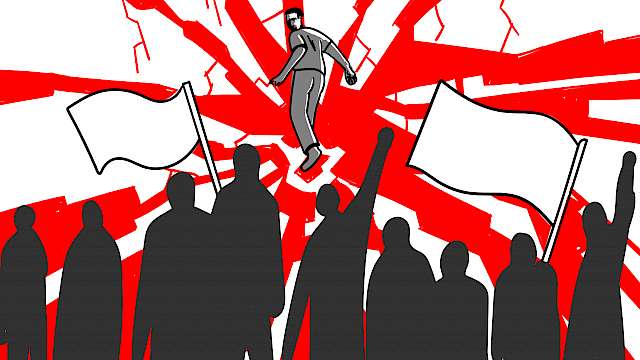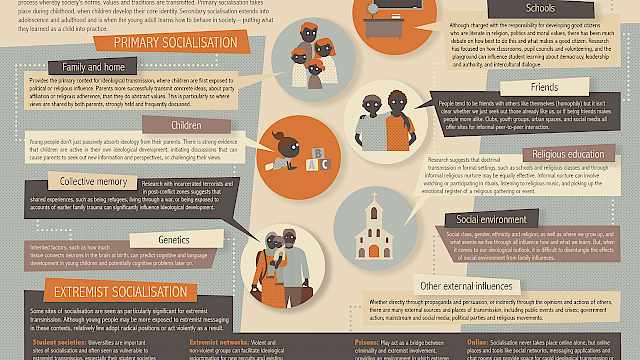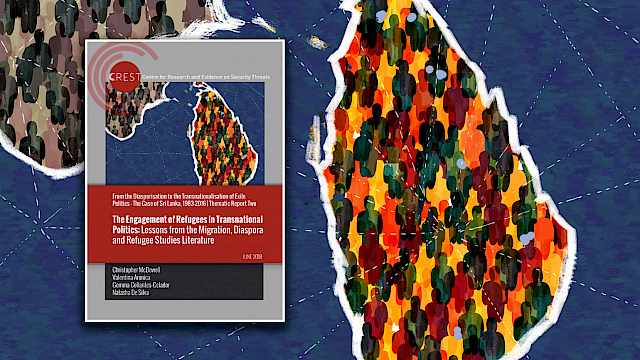The briefings, written up in this report, were delivered as part of a CREST Workshop on Reciprocal Radicalisation organised in London in May 2018 and attended by 35 practitioners from the UK government, police, probation, and the prison service.
Papers and discussion during the day covered topics including interactive escalation of rhetoric and violence between extremist groups, signs and causal factors, the impact of the state, mainstream and social media, and potential opportunities for intervention.
What is reciprocal radicalisation?
Reciprocal radicalisation (and related terms, including cumulative extremism and co-radicalisation) is the idea that extremist groups fuel one another’s rhetoric and/or actions, including violence.
It emerged as a concept after the 2001 riots in Northern England linked to the presence of extremists and was further embedded following the establishment of the English Defence League in response to demonstrations by Islamist extremists in 2009.
In 2015, a reference to reciprocal radicalisation was made in the UK Government’s Counter-Extremism Strategy. Despite finding a footing in both academic and policy circles, the empirical evidence for reciprocal radicalisation so far has been mixed.
Analyses suggest that relationships between extremist groups are more complex, and are mediated by the state, digital technology, and the news media.
This report provides an overview of the discussions on signs of reciprocal radicalisation, the type of data and research methods most appropriate, and the impact of social media.
Read more
A series of briefings from these discussions are also available, and can be read on our sister website Radicalisation Research here: https://www.radicalisationresearch.org/debate/briefings-reciprocal-radicalisation//
Copyright Information
As part of CREST’s commitment to open access research, this text is available under a Creative Commons BY-NC-SA 4.0 licence. Please refer to our Copyright page for full details.
IMAGE CREDITS: Copyright ©2024 R. Stevens / CREST (CC BY-SA 4.0)






